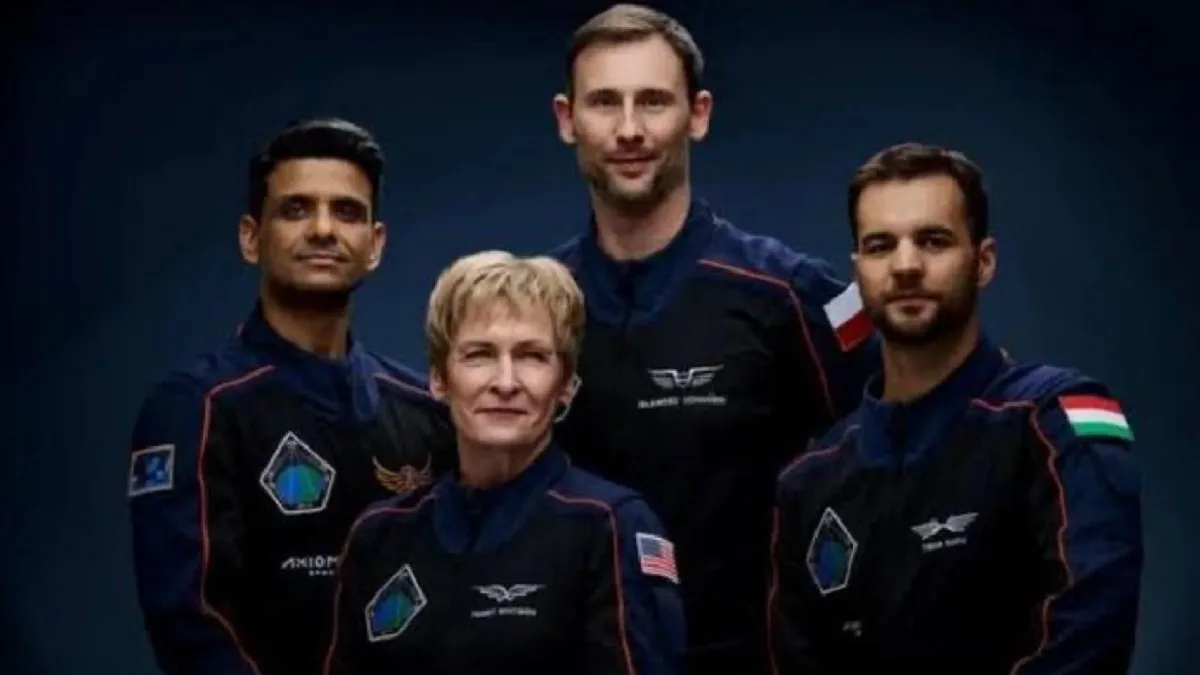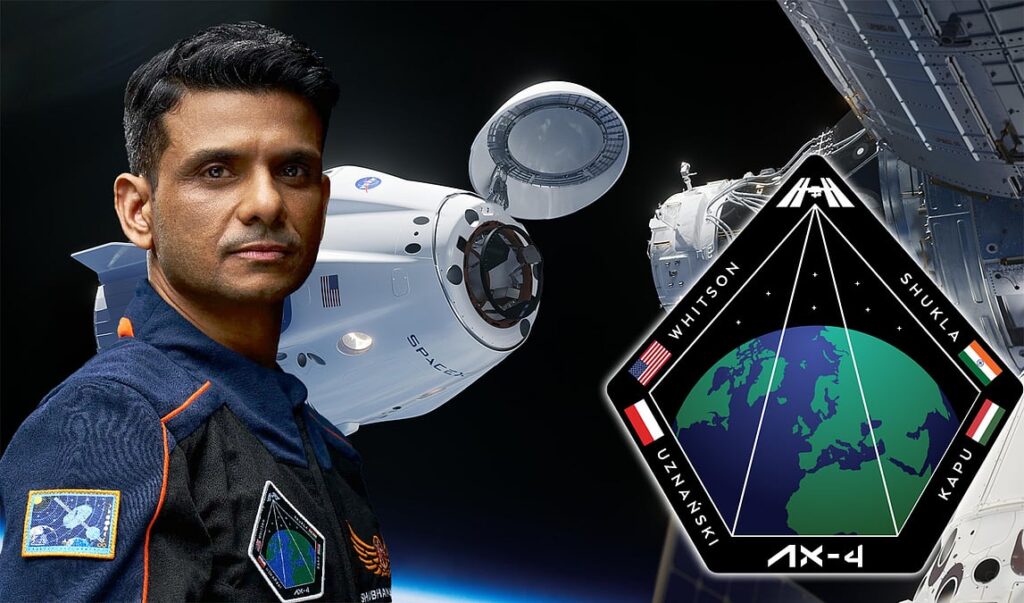After a gap of over four decades since Rakesh Sharma’s historic flight in 1984, India is making a grand comeback to human space exploration with the Axiom-4 mission, a joint venture supported by ISRO and NASA.
The 14-day mission will feature an international crew led by Commander Peggy Whitson, with India’s own pilot Shubhanshu Shukla aboard, alongside mission specialists Tigor Kapu (Hungary) and Slawosz Uznanski-Wisniewski (Poland). All participants are representing their respective national governments.
India-Centric Space Experiments on Board
Shukla’s role goes far beyond piloting—he will carry out seven cutting-edge space biology and nutrition experiments, five of them designed in collaboration with NASA’s human research programme.

One of the unique ISRO-designed experiments includes sprouting methi (fenugreek) and moong (green gram) seeds in microgravity to study their behavior across generations—crucial for developing sustainable life-support systems for future long-duration space missions.
These nutritional studies are key to ISRO’s ambitious Gaganyaan human spaceflight mission scheduled for 2027, as they will help create self-sustaining food systems for astronauts.
A Rs 550-Crore Investment in the Future of Space Travel
ISRO’s commitment to the Axiom-4 mission is underscored by a significant investment of ₹550 crore, reaffirming India’s long-term vision to lead in space research and human spaceflight capabilities.
A Big Step Towards Gaganyaan
The data and experience from Axiom-4 will directly influence India’s first crewed Gaganyaan mission, expected to launch in 2027. With this mission, India not only marks its return to space but also joins a select group of nations shaping the future of human space exploration.


